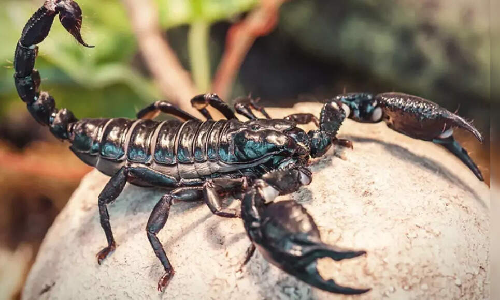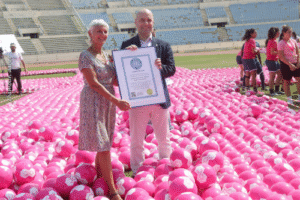In a groundbreaking discovery, scientists have identified a powerful anticancer molecule in the venom of an Amazonian scorpion that specifically targets and destroys breast cancer cells, offering hope for a new class of cancer therapies.
The molecule, found in the venom of the Tityus obscurus scorpion—native to the Amazon rainforest—has shown remarkable selectivity in killing breast cancer cells while sparing healthy ones, according to a study published by an international research team led by the Federal University of Amazonas (UFAM) and European cancer institutes.
The molecule, named Tozulin, disrupts the cell membranes of cancer cells and interferes with their ability to multiply. In lab tests, it reduced tumor cell viability by up to 85% without damaging normal tissue.
Unlike conventional chemotherapy drugs, which often come with severe side effects, Tozulin demonstrated low toxicity and high precision, making it a promising candidate for next-generation breast cancer treatments.
Researchers worked across disciplines—combining molecular biology, toxicology, and oncology—to isolate and synthetically replicate the venom compound for testing in controlled environments.
“Nature continues to surprise us. This tiny scorpion carries a venom that might help save millions of lives,” said Dr. Camila Nunes, lead researcher from UFAM.
Clinical trials are expected to begin within the next 2–3 years, pending further animal model studies.
This discovery once again highlights the Amazon’s immense biodiversity and pharmaceutical potential, underscoring the importance of preserving the rainforest—not just for climate, but for medical innovation.
The identification of a breast cancer-killing molecule from scorpion venom offers a beacon of hope for millions of women worldwide. It proves that nature remains one of the most powerful and untapped medicine cabinets on Earth.







